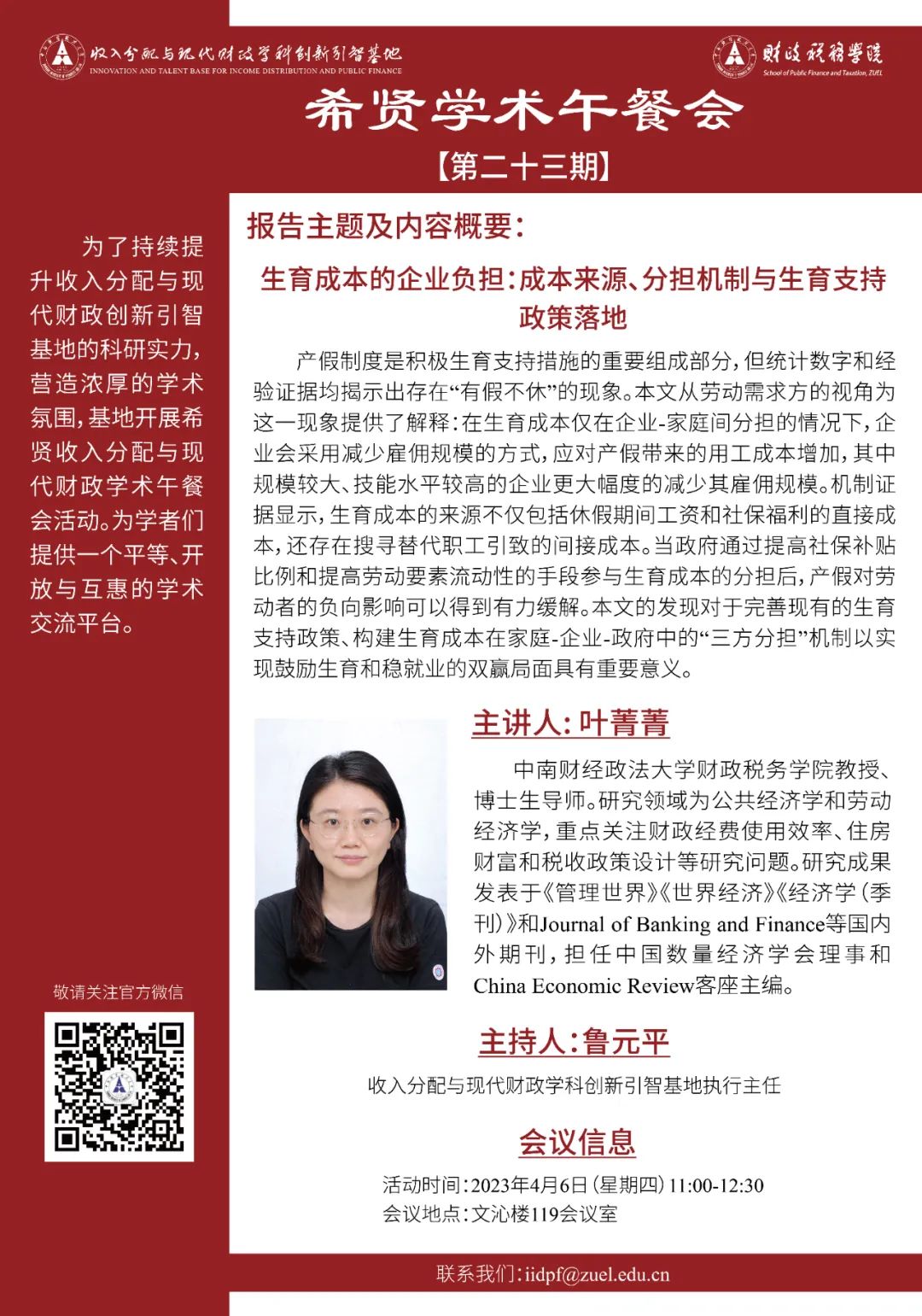
Topic: The Corporate Burden of Fertility Costs: Cost Sources, Sharing Mechanisms and the Implementation of Fertility Support Policies
Time: Thursday, 6 April 2023, 11:00-12:30
Venue: Conference Room 119, Wenqin Building
Moderator: Lu Yuanping
Keynote speaker: Ye Jingjing
YE Jingjing is a professor and PhD supervisor at the School of Public Finance and Taxation at ZUEL. Her research interests are in public economics and labour economics, with a focus on research issues such as efficiency in the use of fiscal funds, housing wealth and tax policy design. Her research has been published in Management World, Journal of World Economics, China Economic Quarterly and Journal of Banking and Finance. She is a member of the Board of Directors of the Chinese Association of Quantitative Economics and a guest editor-in-chief of China Economic Review.
Abstract:
Maternity leave systems are an important component of active maternity support, but both statistical and empirical evidence reveal a phenomenon of 'leave without leave'. This paper provides a labour demand-side explanation for this phenomenon: where the costs of childbirth are shared only between firms and households, firms respond to the increased costs of maternity leave by reducing the size of their workforce, with larger, higher-skilled firms reducing their workforce even more sharply. Institutional evidence suggests that maternity costs come not only from the direct costs of wages and social security benefits during leave, but also from the indirect costs of searching for replacement workers. The negative impact of maternity leave on workers can be strongly mitigated when the government is involved in sharing the costs of childbirth by increasing the proportion of social security benefits and improving labour mobility. The findings of this paper have important implications for improving the existing maternity support policies and building a "tripartite sharing" mechanism among households, enterprises and the government to achieve a win-win situation of encouraging childbirth and stabilising employment.
